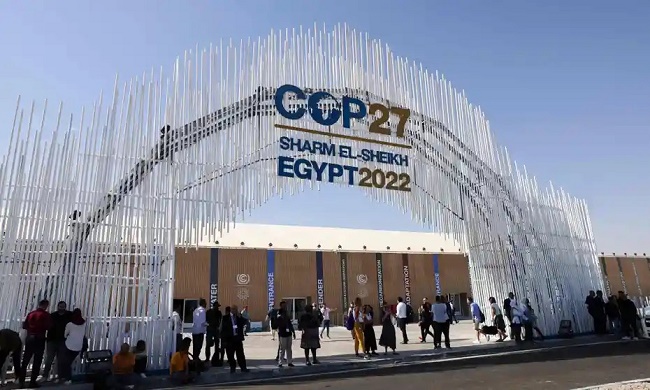Over 200 of the world’s largest businesses, civil society groups and prominent voices on climate have reaffirmed their own commitment to limit global temperature rise to 1.5ºC and urge governments to align implementation plans with 1.5ºC.

They made the submission in a statement organised by the We Mean Business Coalition and The B Team that was released as the official COP27 outcomes were drafted over the weekend, ready for national ministers to arrive in Egypt early this week, and the G20 meeting gets underway in Bali on Tuesday, November 15, 2022.
Some of the individuals include Sir Richard Branson, Founder, Virgin Group & Co-Founder, The B Team; Christiana Figueres, Global Optimism, Co-Founder; Johan Rockström, Potsdam Institute for Climate Impact, Research Director; and Hiro Mizuno, UN Special Envoy on Innovative Finance and Sustainable Investments.
Some of the businesses include Nestlé, IKEA, MasterCard Incorporated and Unilever plc.
Some of the civil society groups include Mo Ibrahim Foundation, We Mean Business Coalition, World Resources Institute and Resilience Rising.
The Statement
As business and civil society leaders, and representatives of science and communities around the world, we are committed to doing everything in our power to limit global warming to 1.5°C and avoid dangerous tipping points. Every fraction of a degree of global heating matters.
We need governments, starting with the world’s most advanced economies, to uphold their commitment to keep global temperature rise to 1.5°C and to move swiftly to its delivery.
As climate negotiators are meeting in Sharm el-Sheikh for COP27, and global leaders gather for the G20 in Bali, the science remains unchanged: 1.5°C is a limit not a target. We must put all our efforts to stay within this limit and avoid the worsening impacts, suffering and costs that any overshoot will bring.
Already at 1.2°C we are seeing the flooded villages of Pakistan, burning forests and towns of California, dried up rivers across Europe and parched fields in Somalia. Those that have contributed least to climate change are the most vulnerable to its impacts.
To keep within this limit, we must all work collaboratively and relentlessly to halve global emissions by 2030. The 2022 UNFCCC NDC Synthesis Report shows that existing pledges are simply not enough: governments must strengthen their commitments and plans and implement them without delay.
Our commitment to the objectives of the Paris Agreement and the Glasgow Climate Pact is unwavering. Thousands of companies, unions, investors, cities, states and regions are committed to 1.5°C, and already taking science-based climate action: delivering clean energy solutions, developing innovative finance mechanisms, and building the resilience of vulnerable communities.
National leaders must demonstrate solidarity and decide where they stand. Decisions taken in the coming days will define our ability to build an equitable and resilient global economy. They will reverberate around the world and down the generations. There can be no excuses for backsliding on the commitments made a year ago.
Every part of society has an essential role to play in delivering 1.5°C. History shows us that humans have the capacity to innovate and solve immense challenges when we work together. The technologies exist and our destination is clear.We stand ready to deliver a just transition and an equitable and inclusive future for all. We want to work with governments in building an enduring legacy based on our collective efforts to secure 1.5°C. We are all in.
